#Raqqa
Text
by Oved Lobel
In Iraq, the combination of militias and security forces that liberated Mosul from IS, backed by US and allied airpower and artillery, were fighting to take back their own city, with a population almost entirely hostile to IS. They had around a year to plan the operation, had all the initiative and were under no domestic or international political or time constraints to complete the operation within a given period. Moreover, the Iraqi security forces lost more than 1,200 men in the battle, and perhaps more than 8,000.
Israel, by contrast, had approximately a week to plan an incredibly complex operation, having been caught entirely off-guard by the Hamas invasion on October 7. The IDF is fighting to remove a terrorist regime from territory Israel does not control and where the population is almost entirely hostile to Israel and supportive of Hamas.
In addition, Israel cannot afford an operation that lasts as long as the battle for Mosul did, nor can it afford the number of casualties sustained by Iraqi security forces around Mosul or US partner forces in Raqqa. The reason for this is simple: because of Israel’s conscript and reservist system, its soldiers are drawn from its workforce. On top of that, there is an insurmountable political and social imperative in Israeli society to preserve the lives of soldiers insofar as possible.
Internationally, meanwhile, pressure on Israel to either finish the war as quickly as possible or simply halt it entirely, regardless of the outcome, has been building since even before Israel launched its ground operation.
There are also substantive differences, both tactically and numerically, between Hamas and IS, including the reality that Hamas had 16 years to build up its much more impressive and embedded military infrastructure in civilian areas.
Finally, a key difference between the battlefields, one of many, is that the US and its partners on the ground were able to facilitate the evacuation of civilians from both Raqqa and Mosul before and during the battles, leaving far smaller civilian populations trapped in the cities while also reducing the battlespace by allowing IS operatives to leave the cities. IS eventually melted away and transitioned back into an insurgency.
In Gaza, where Hamas utilises every inch to attack Israel and is unwilling and unable to leave the battlefield like IS did, it is unfortunately impossible for civilians to flee to fully safe areas. They cannot exit into the Sinai both because Egypt will not allow it and because the international community has decided that temporarily displacing Palestinian civilians out of Gaza is worse than keeping them as human shields for Hamas.
Given all these factors, one would expect an Israeli operation necessarily to be more destructive over a shorter timeframe and to result in more civilian casualties. However, this indicates little about the conduct of the war.
23 notes
·
View notes
Text
“We were like the living dead,” said the women of Raqqa while talking about the period when Raqqa was controlled by ISIS, adding, “The liberation of Raqqa was like a rebirth for us.”
This week marks the sixth anniversary of the liberation of Raqqa from ISIS. Long live the martyrs!
17 notes
·
View notes
Photo
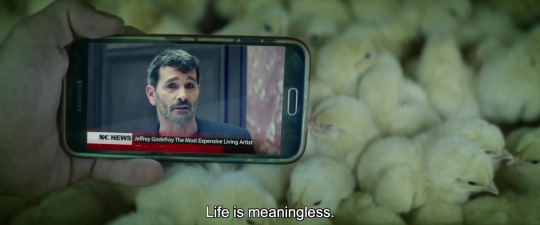
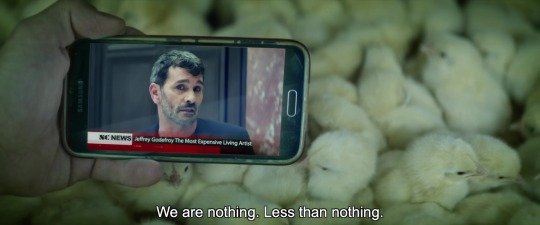
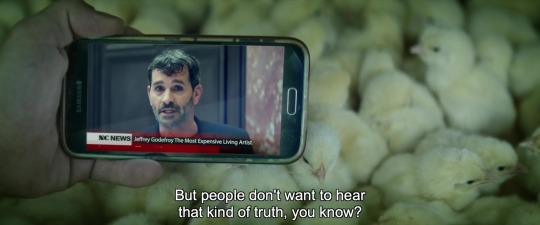

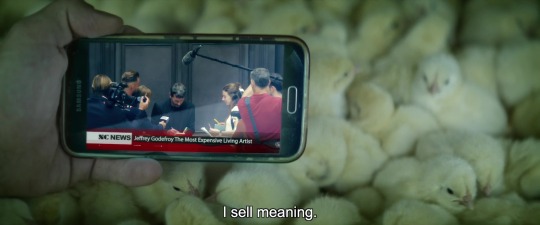
الرجل الذي باع ظهره [The Man Who Sold His Skin] (Kaouther Ben Hania, 2020)
#الرجل الذي باع ظهره#drama film#refugees#Syria#Belgium#life#The Man Who Sold His Skin#Middle East#Wim Delvoye#love#Kaouther Ben Hania#Syrian civil war#Tunisian cinema#money#contemporary art#human rights#Raqqa#Brussels#Europe#Darina Al Joundi#Dea Liane#Koen De Bouw#Monica Bellucci#Christian Vadim#Schengen visa#Yahya Mahayni#Saad Lostan#art museum#passport#tattoo
21 notes
·
View notes
Text
How do you pronounce Allah correctly?
The word Allah (الله) is a special word in many ways. Especially the pronunciation can be tricky if you don't know the rules. Here is how it works.
https://arabic-for-nerds.com/islam/pronunciation-allah/?feed_id=4906
#ISLAM#ARABICLETTERS#ARABICSCRIPT#BASMALA#CONSONANT#EMPHASIS#RAQQA#SHADDA#SHIA#SHIAISLAM#TAJWEED#WIEDERHOLEN#تجويد
2 notes
·
View notes
Text
Just leaving a few more articles here.
Turkey not realising that if it fucks around, it will find out.
Feel free to reblog if you wish.
Feel free to reblog
#dougie rambles#political crap#middle east#asia#syria#rojava#north and east Syria#raqqa#Syrian democratic forces#SDF#fuck Erdogan#leftism#anti fascism#anti imperialism#reblog this#reblog the shit out of this#Iraq#levant#mesopotamia#Syrian Democratic council
3 notes
·
View notes
Photo
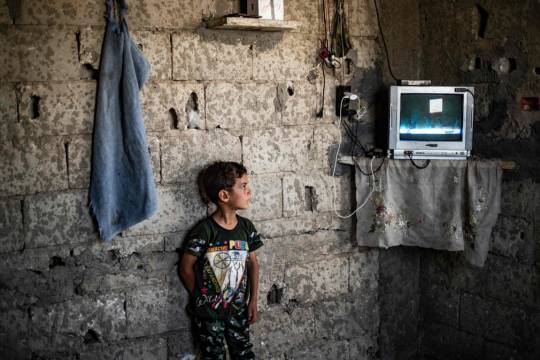
Raqqa, Syria: A Syrian boy, displaced along with his family from Deir ez-Zor, watches a screen inside the damaged building where he is living.
Photograph: Delil Souleiman/AFP/Getty Images
4 notes
·
View notes
Text
Book Review: ‘The Daughters of Kobani: A Story of Rebellion, Courage, and Justice‘

The Daughters of Kobani: A Story of Rebellion, Courage, and Justice by Gayle Tzemach Lemmon
My rating: 4 of 5 stars
Repelling a multifront attack, abetted only by dwindling supplies, negligent regional allies, and limited external support (Kobani). Fording the turbulent Euphrates in the dead of night in anticipation of a mine-laden and sniper-beset shoreline (Manbij). Laying siege to a strategically valuable dam, the nation's largest, for two and a half months (Tabqa), situated fewer than thirty miles from ISIS's stronghold. And exhausting all manner of physical and mental strength to serve as the spearhead of regional militia seeking to pry open and overtake Raqqa. The fighters of the YPJ (women's protection units) exhibited remarkable fortitude and resilience, and their efforts proved pivotal in counterbalancing a world on fire.
Lemmon's THE DAUGHTERS OF KOBANI is an informative and entertaining read that sits snugly in the middleground of illuminating nonfiction for policy novices or casual strategists. This isn't a book for grinding academics, and this isn't a book for skilled militarists. This book views a limited conflict, in a tucked away region of northern Syria, for the span of a few years, through the eyes and experiences of a handful of dedicated women, belonging to an ethnic minority (Kurds). Every injustice, travail, and disdain perpetuated by the thoughtlessness, violence, and corruption native to this conflict is etched into the hearts and minds of these individuals. Readers seeking more should hunt for supplemental analysis elsewhere.
But for their efforts, the women who comprise the YPJ, the growing, specialized partition of the YPG (people's protection units), the battle is personal. These women defied and rebuked the threat of domestication to take up arms against terrorists both organized and not. Lemmon's journalism assiduously documents the YPJ's origin and the personalities that guide and ground its philosophy: Azeema, for example, is boisterous and confident, but also inscrutable and prudent ("We'll sleep when the fight is over," p. 73); Rojda's "quiet calmness" is purportedly mistaken as "passivity," but people "usually made that error only once" (p. 13); and Znarin is dutiful, but not to the patriarchic obligation through which she's lost everything, but to "the cause of women's rights and, as a consequence, Kurdish rights" (p. 23).
THE DAUGHTERS OF KOBANI outlines the quest for self-governance (of the Kurdish people, before and during civil war), the quest for authenticity and viability (of extended militia, among enemies and allies old and new), and the quest for individual purpose (of the women whose lives and homes were ripped apart by varying components of black-flag terrorism). Remarkable, then, is Lemmon's interweaving of the fragmented capacity (or willingness) of U.S. policymakers with the difficult reality of on-the-ground, street-to-street combat. All the more so when the point of view for said exchanges pivots between sniper positions with broken radio signals or fiendish and frantic amphibious operations aboard borrowed watercraft.
This book strikes a purposeful balance. For example, readers encounter the fantastic necessity of unearthing the historical truths, convenient or otherwise, about the philosophical influence of the PKK (Kurdistan Workers' Party) and its founder Abdullah Öcalan. The long-imprisoned Öcalan's progressive intellectualism seems radical and unlikely to western ears (e.g., gender equality, freedom of expression, full suffrage, economic fairness). But the dissident's tenets of human equality and of striking a balancing with the demands of ecological necessity are entirely rational and fundamental to others who's legislative and military options are all that remain when opposed and oppressed by autocrats and terrorists.
Understandably, this approach may not suffice for readers hunting for more detail than personal stories can provide. Regional experts will demand more intricate maps of the infernally tense Manbij campaign, which saw waxing and waning success as Rojda and others crossed the Euphrates at night. Or perhaps demand a few more details on the Berthnahrin Women's Protection Forces, the all-female Assyrian militia.
Other, book-savvy researchers will surely demand more context for the sprawling Syrian Civil War, proper, during which the book's events take place. Lemmon focuses on the military history and political corollaries associated with the YPG and YPJ, but spends little time on the influence and effectiveness of neighboring or oppositional parties. For example, the Democratic Union Party's Charter of the Social Contract, dated to January 2014, is a remarkable document. But the Charter has clearly been amended over the better part of a decade. Whether those changes are progressive or regressive, goes unstated.
Altogether, THE DAUGHTERS OF KOBANI is accessible and edifying. The author's promise is to glimpse the peculiar and inspiring, and the book does well to deliver. The itinerant nature of international war reporting obliges a few gaps in the narrative, but for all intents and purposes, Lemmon composed a memorable story about principled people whose statelessness was only the beginning of their story.
Book Reviews || ahb writes on Good Reads
#review#nonfiction#the daughters of kobani#female soldiers#women soldiers#kurd#syria#international studies#4 of 5 stars#goodreads#dedicated women#fortitude and resilience#journalism#kobani#manbij#tabqa#raqqa#abdullah ocalan
1 note
·
View note
Text
Raqqa: Les FDS lancent une nouvelle opération anti-EI
Les FDS ont annoncé le lancement, dans le nord de la Syrie, d’une nouvelle opération anti-EI baptisée « Pour les morts de Raqqa ».
Les Forces démocratiques syriennes (FDS) mènent une nouvelle offensive contre l’organisation djihadiste État islamique (EI) dans la région de Raqqa, au nord de la Syrie. L’opération a lieu en réponse à une attaque de l’EI dans laquelle six combattants des FDS avaient…
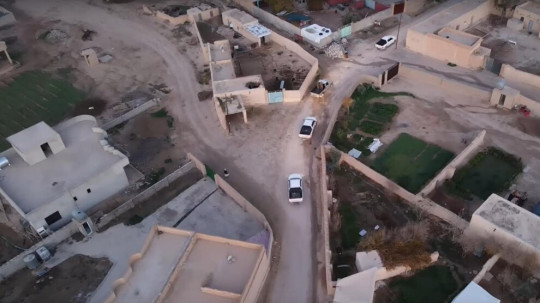
View On WordPress
0 notes
Text
Warga Raqqa Menuntut Qishash Pembunuh Wanita Hamil, Otoritas Kurdi Menolak Hukuman Mati
RAQQA (Arrahmah.id) — Warga Raqqa melakukan unjuk rasa besar-besaran menuntut hukum qishash terhadap pelaku pembunuhan wanita hamil 8 bulan dan putrinya pada Ahad (22/1/2023). Mereka menyerang gedung pengadilan otonomi Administrasi Utara dan Timur (AANES) yang menjaga milisi Kurdi Asayish.
Dilansir North Press Agency (23/1), pembunuhan wanita hamil dan anaknya yang berusia delapan tahun dilakukan…

View On WordPress
0 notes
Text
À Palmyre et ses sœurs- Brahim Boumedien
À Palmyre et ses sœurs- Brahim Boumedien
Palmyre, je t’admire* et je pense à toi
De pseudos rédempteurs, adeptes de Satan
T’ont démolie, salie, en imposant leur loi
Tes sœurs qui me sont chères en ont souffert autant
Je pense à Raqqa, je pense aussi à Homs
Ces antiques cités, belles à visiter
Sans oublier Alep, ville de référence
Et tous ces monuments, maintenant désertés
Je vois encore Damas, son musée national
La mosquée omeyyade, le…
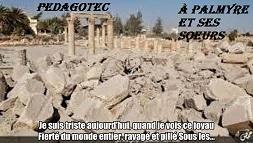
View On WordPress
0 notes
Text
0 notes
Text
3 killed and 10 wounded in US-led assaults on Raqqa, Syria
3 killed and 10 wounded in US-led assaults on Raqqa, Syria
According to IRNA from Al-Mayadin, Qassad militias (Syrian Democratic Forces) centered metropolis of Tel Abyad on the outskirts of Raqqa with rocket and mortar assaults.
Three of us have been killed and 10 others have been wounded in US-backed Kurdish militant assaults all by way of the metropolis of Tel Abyad, in accordance with the report.
Qassad militias are affiliated with the US navy in jap…
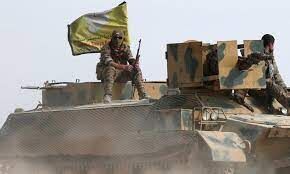
View On WordPress
0 notes
Text




Swann Arlaud in Exfiltrés (Escape from Raqqa) dir. Emmanuel Hamon
118 notes
·
View notes
Text







Swann Arlaud in Exfiltrés (2019)
127 notes
·
View notes
Text
A CLASSIC: The best modern Arabic novels which were translated into English. Part 1: Syria, Lebanon, and Palestine
In recent years many outstanding modern Arabic novels were translated into English. Part 1: authors from Syria, Lebanon, and Palestine.
https://arabic-for-nerds.com/literature/best-modern-arabic-novels-translated-into-english-syria-lebanon-palestine/?feed_id=4191&utm_source=Tumblr&utm_medium=geralddrissner&utm_campaign=FS%20Poster
#LITERATURE#ALEPPO#ARABICLITERATURE#AUDIOBOOKS#BILINGUALBOOKS#DOTS#LEBANESECIVILWAR#LONDON#PALESTINE#PRESENTS#RAQQA#TRIPOLI#WIEDERHOLEN
6 notes
·
View notes
Text
Also this.
Fuckers don’t seem to get the message.
Glad this shit was quickly foiled.
#dougie rambles#personal stuff#news#political crap#middle east#syria#assyria#bethnahrin#kurdistan#raqqa#syrian civil war#Syrian democratic forces#sdf#ypg#ypj#fuck isis#leftism#anti fascism#feel free to reblog
0 notes